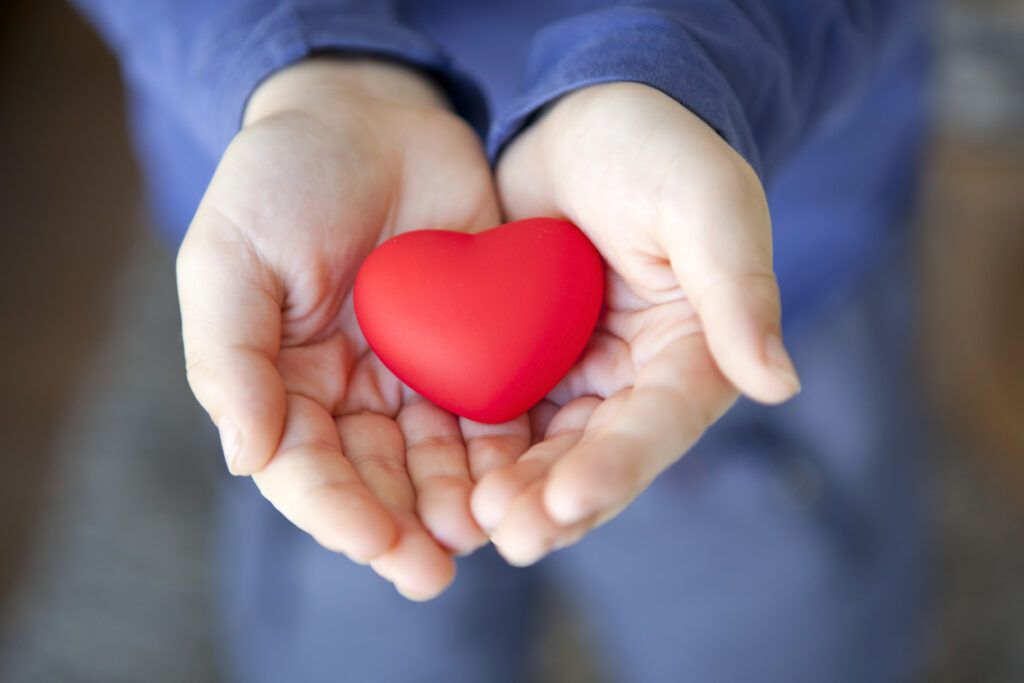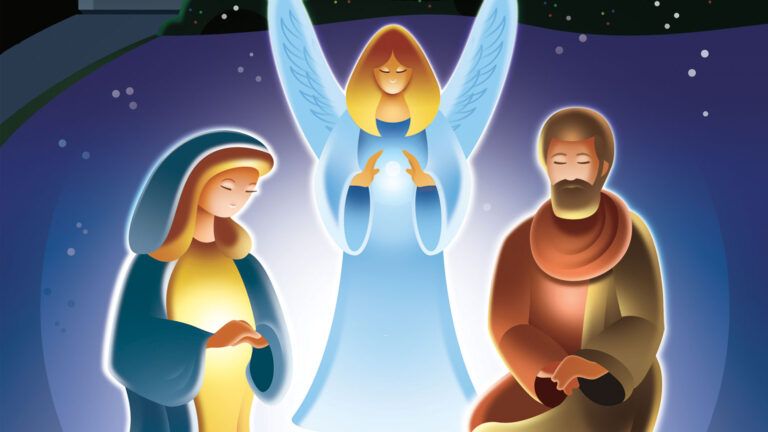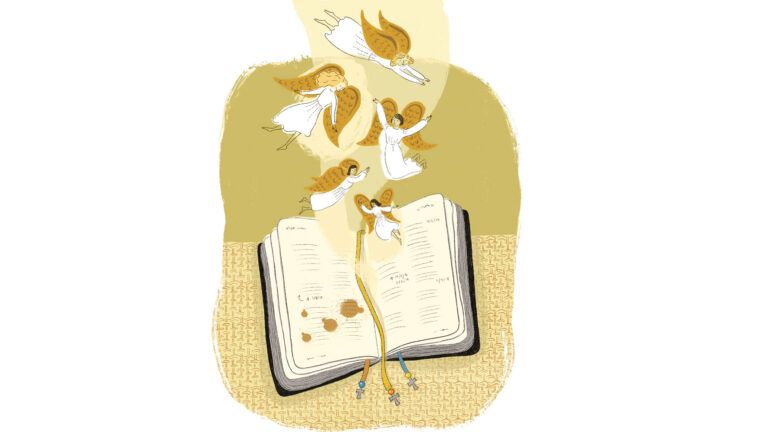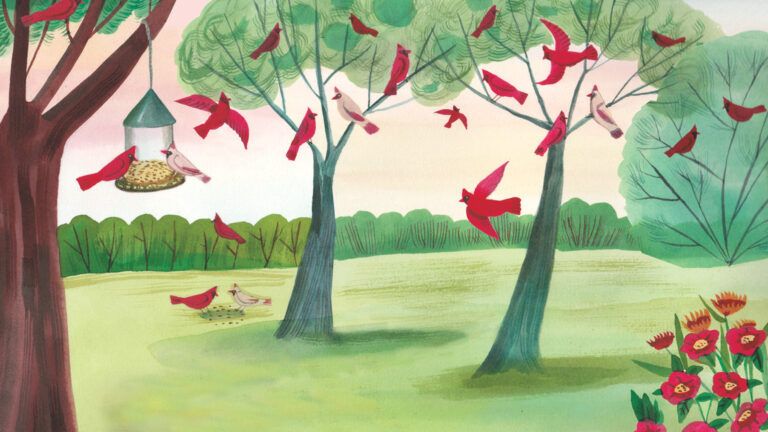Steam filled the bathroom when I stepped out of the shower.
I was still a little sleepy as I ran a hand over the mirror to wipe away the fog. My reflection looked back at me: wet hair sticking up, damp cheeks. Then my gaze dropped to the marks on my chest. My scars had faded after all these years and were hardly noticeable — just two lines crossing in the middle of my chest. But the memory they brought back was as clear as ever.
I had only really known the little girl for a few weeks. I didn’t remember her name. But I carried her with me every day. We met in the Children’s Hospital of Columbus. I was 11, one of the few kids in the children’s ICU. I was born with a hole in my heart, a condition called tetralogy of Fallot. So was the five-year-old girl in the bed beside me. We were both recovering from the same surgery. Being older and wiser, I thought it was my job to look out for her.
“Do you want to hear a story?” I recall asking her one afternoon. I held up a few picture books from the shelf. Parents often brought books for us all to read, and the nurses were always on the lookout for more to add to the collection.
“That one!” she said, pointing to her favorite.
“Again?” I said. “Well, okay.”
I settled next to her on her bed. She was a tiny thing with sandy hair and big brown eyes. When she stood by my bed her head barely cleared the top of the mattress. She was much too small to have undergone major heart surgery. Compared with her, I was practically a grown-up. She needed someone to watch over her when her parents weren’t around or the nurses were busy.
“It was breakfast time, and everyone was at the table,” I read. “Father was eating his egg. Mother was eating her egg. Gloria was sitting in her high chair eating her egg too.”
“And Frances was eating bread and jam!” the little girl said. She gave me that big smile that lit up her whole face. She couldn’t read yet, but she knew this story by heart.
Getting dressed in my bedroom now, I laughed remembering it. How many times had I read that story to her? It was so easy to make her happy. She seemed always to be smiling or laughing or singing songs. I wanted to protect her from anything that might hurt her. It wasn’t fair a little girl like that had to be in a hospital at all. I frowned. Life wasn’t fair. I learned just how unfair it was only a few days after the last time I read her that story. We were in our beds, as usual. My friend was getting a visit from her parents, when something went wrong.
Her monitor beeped out an alarm. Doctors and nurses ran in. Her parents were moved aside. From my own bed a few feet away, I could see it all. The head doctor shouted orders I didn’t understand. The nurses read out vital signs. Her monitor went from an irregular beeping to a steady discordant note. An orderly wheeled in a big machine on a cart. One doctor rubbed something on the girl’s chest. Then he grabbed a set of paddles from the machine and yelled, “Clear!” Everyone stepped back. He pressed the paddles to her chest. There was a violent bang. Her small body jolted up and fell back down. Through it all I sat on my bed, frozen in horror.
Please let her be okay! I thought over and over. She’d never looked as vulnerable as she did now. And I had never felt so helpless. The doctor shocked her again. And again. Then everything stopped. She lay still on the bed. The doctors and nurses looked down, nobody meeting another’s eyes. One of them went over to the girl’s parents and spoke quietly. Her mom started crying. She shook so violently, she almost couldn’t stay on her feet. Her dad was crying too. I was still so numb with shock, it took me a moment to realize I was crying as well. An orderly drew the curtain and wheeled my friend’s bed out of the unit. The other kids and I looked at one another. We were a fraternity of survivors in the ICU. When one of us died, we all died a bit too.
My own recovery went well. Shortly after my friend died I was moved to a private room. Then I was cleared to go home. “You’re really lucky,” a nurse told me as I left the hospital.
“He sure is,” my dad said.
“I guess,” I mumbled. But why? I thought. Why did I get to go home when that little girl had died? I was far from perfect, and she hadn’t done anything wrong. How could she have? She was only five!
I didn’t know how to put my questions into words, so I kept them to myself. Back home I smiled and nodded when people told me how fortunate I was. No one knew I couldn’t stop thinking about that girl and how she deserved to live more than I did. The nightmares started a few days after I came home. Every night I relived my friend’s death. The beep of the machines. The doctor’s orders. Her mother’s tears. The way she lay still as they wheeled her away. I kept my nightmares a secret. I was too old to go running to my parents with bad dreams, too big to need watching over by someone older and wiser. Then one night I woke up from my nightmare with a scream. My dad came running in.
“What’s wrong?” he cried. “Don’t you feel well?”
I shook my head. “It’s not that. It’s…it’s…” Dad waited until I was ready to talk. “What did that little girl do to make God kill her, and yet he didn’t kill me?” I asked him finally. “How come I had no problems at all and she died? What could she have done to be punished like that? Why wasn’t God watching over her?”
“David, God didn’t kill that little girl, and he didn’t punish her. That surgery is complicated. Doctors are just learning how to do it. Ten years ago there wouldn’t even have been any surgery for kids like you. You would have died back then.”
“But how come my operation was so easy and hers wasn’t?” I asked.
“Easy?” my dad said. “David, your surgery wasn’t easy at all. We thought we were going to lose you because of the amount of internal bleeding you had. We even had a priest come to the hospital to give you last rites.”
“You did?” I said. “I don’t remember that.”
“You can’t remember it because you were in a coma,” Dad said. “For two weeks after your operation. Your mom and I prayed as hard as that little girl’s parents. We know it could have been you who died that day. God watches over all of us, no matter what happens.”
I thought about what Dad was saying, and it made sense. I hadn’t survived because I deserved to live more than my friend. My parents hadn’t prayed any harder than hers. Heart surgery was just complicated, and many things could go wrong.
“I guess I really am lucky,” I said. I wasn’t too old to need someone to look out for me. Someone older and wiser.
Just knowing I didn’t have to face the world alone made me feel better. My friends, my family, God, his angels—they were all with me, no matter what. As dad was leaving my room, he turned to me from the doorway. “You wouldn’t remember this either,” he said, “but your friend was already in the ICU when you were in the coma. She used to come over to your bed and sing to you. She was watching over you.”
In front of my bedroom mirror, I straightened my tie. My surgery scars were hidden under my shirt now. But I knew they were there, along with the memory of that little girl. The one who’d been at my side like a tiny angel when I didn’t even know she was there. I was older now, a lot older, and hopefully somewhat wiser. Wise enough to know that I have angels watching over me, when life is fair and when it’s not.






